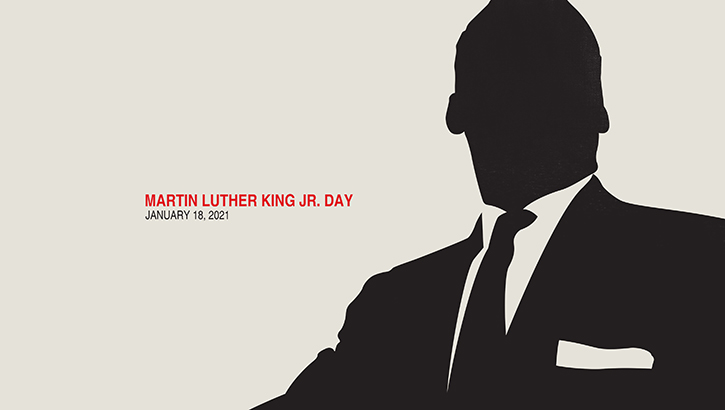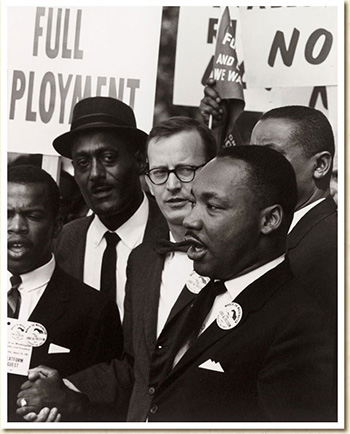Lessons of service-before-self epitomize Dr. King's legacy
 MLK Day is celebrated as a day of service to others. (Graphic courtesy of the Defense Equal Opportunity Management Institute.)
MLK Day is celebrated as a day of service to others. (Graphic courtesy of the Defense Equal Opportunity Management Institute.)
“I believe what self-centered men have torn down, men other-centered can build up.”
This message, from 1964 Dr. Martin Luther King, Jr Nobel Peace Prize acceptance speech highlight the gift that inspired his civil rights career - his dedication to serving others.
King was a respected civil rights leader who dreamed of establishing peace, justice, and brotherhood between people of all races and ethnicities. He marched more than six million miles and delivered more than 2,500 speeches to protest against segregation. Tragically, he was assassinated on April 4, 1968, leaving the nation in mourning.
Each January we honor King’s legacy on Martin Luther King, Jr. Day with a federal holiday dedicated as a national day of service.
Throughout January, the Defense Health Agency will honor Martin Luther King, Jr.’s legacy with a #MonthOfService, an invitation for each of us to help establish justice through service in our communities.
Nonviolence is the Way
King was the leader of a civil rights movement that sought to end segregation through nonviolent action.
“Nonviolence,” he said, “is not sterile passivity but a powerful moral force which makes for social transformation.” He was inspired by Gandhi’s nonviolent movement in India.
 Martin Luther King, Jr, in a Civil Rights March on Washington, D.C. in August 1963. (Courtesy of National Archives.)
Martin Luther King, Jr, in a Civil Rights March on Washington, D.C. in August 1963. (Courtesy of National Archives.)
King and his followers organized sit-ins, marches, and other forms of nonviolent protest. When met with violence by those who wanted to protect segregation, Dr. King and his followers responded with his principles of nonviolence.
On Dec. 5, 1965, King and his followers stayed off of the buses in Montgomery, Alabama – thus started the Montgomery Bus Boycott. This nonviolent action was initiated to pressure the city to repeal its segregation laws. The city refused to budge and the protests continued for more than a year, until 1966 when a federal court declared the laws unconstitutional.
King believed that nonviolent action would create a “tension” that would force “a community which has consistently refused to negotiate to confront the issue.” He believed that there was a “constructive, nonviolent tension which is necessary for growth.” He sought to achieve justice for people of color, who were oppressed by unjust laws.
Justice for All is the Goal
King’s nonviolent movement brought the nation’s attention to the injustices that people of color faced in the United States.
In the 1950s the Supreme Court upheld a series of lower court rulings that declared segregation in public school and transportation systems as unconstitutional.
In the 1960s Congress followed suit by passing the Civil Rights Act of 1964, the Voting Rights Act of 1965, and the Fair Housing Act of 1968. These key pieces of legislation effectively outlawed segregation throughout the nation.
King’s dream of justice and brotherhood throughout the nation—a dream inspired by his dedication to service—was becoming a reality!
Love is the Foundation of Service
To achieve his dream King believed that, “man must evolve for all human conflict a method which rejects revenge, aggression and retaliation. The foundation of such a method is love.”
Love was the foundation of his nonviolent movement to seek justice for people of color. It was the powerful force that drove him to lead a life service, no matter what it cost him personally.
Join the DHA community in honoring King’s legacy throughout January by using your talents to help serve in your community.
Martin Luther King, Jr. Day is “a day on, not a day off!”
Learn more: https://www.nationalservice.gov/serve-your-community/mlk-day-service